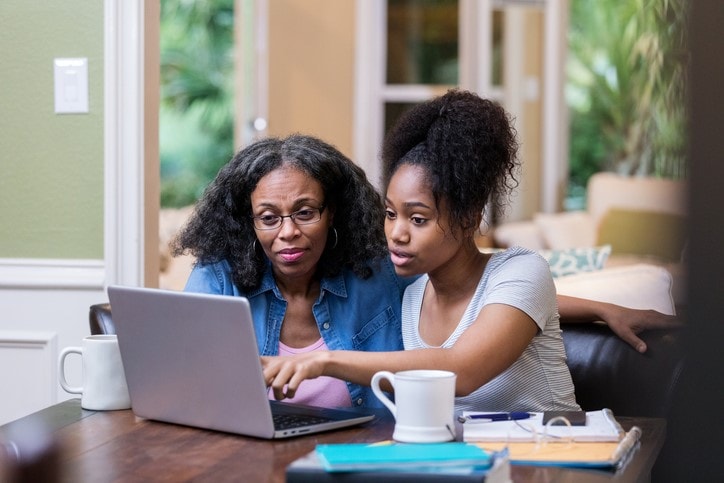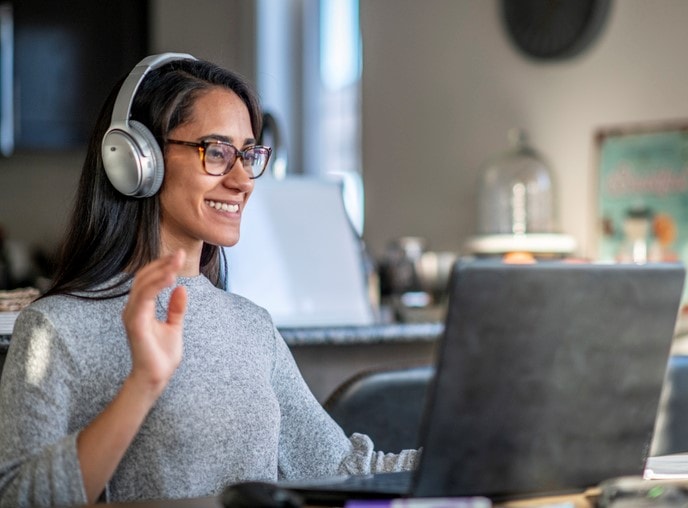/ News Posts / Parent-Teacher Collaboration in the COVID-19 Era
Parent-Teacher Collaboration in the COVID-19 Era
By Anthony Patterson, sponsored by Casio
It’s obvious to note that COVID-19 has severely impacted education practices, especially those related to music education, in the United States as well as globally. As we enter the 2020–2021 school year, teachers, students and parents will embark on a new journey with unforeseeable challenges. With these new challenges, it’s more important than ever that teachers and parents collaborate to help their children progress without delay. Prior to COVID, parent-teacher relationships may have been tense for some, so how does one navigate this new dynamic in the time of COVID-19? Here are some tips to help music educators and parents work together to foster a healthy learning environment at home:
- Take advantage of free learning resources. The National Association for Music Education (NAfME) is one of the world’s largest arts education organizations, and it offers a variety of resources for educators including NAfME Academy®. NAfME Academy is a robust webinar series hosted by a variety of different individuals that offers music teachers insight and resources. The Academy works with school districts to provide NAfME Academy subscriptions to the music teachers they employ. Teachers can access this webinar series for expertise on a plethora of topics to help better themselves, their students, and their communication with parents.
- Keep an open line of communication. Parents must take on a teaching role at home now, and teachers must remain patient and understanding. The learning curve will be hard for everyone involved including the students. When a student is learning a new concept or skill, the teacher is a huge propelling force through their journey. Teachers can assist parents in this new role through keeping an open line of communication. Offering means of contact such as email, phone, or any messenger service or portal will help prepare parents to take on the teacher persona without feeling stranded.
- Create a sense of community for all. As we embrace the “new normal” together, teachers can create a sense of community for both students and their parents. Group emails, interactive activities, Zoom meetings, and town hall meetings are all ways teachers can help to facilitate an open dialogue and feeling of community among their students and their parents at a distance.
- Honesty is always the best policy. Although it may be cliché, we are all in this together. If teachers remain honest and open about their experience, how students are handling their workload and practice schedules, it’s easier to remain on task. The same goes for the parents. If parents remain honest with the teachers, the teachers can pivot if needed and help their students along accordingly.
- Offer encouragement and a helping hand. “You’re doing great! Is there anything I can assist with?” and “How can we best meet our goals?” are two questions that can revolutionize the parent-teacher relationship. When a parent is confused or challenged with a task, it’s best to ask how we can clear up confusion together. Parents may feel helpless and alone in the virtual-schooling process even if there are virtual resources available. Meeting challenges head on and with a helping hand makes parents feel more comfortable and collaborative.
- Provide the right technology and learning tools when possible. Teachers can recommend educational tools and products to use at home to support instruction and practice. Such products are imperative to a student’s improvement and a parent’s ability to aid. Companies like Casio provide a range of digital pianos that are ideal for learning, like the Casiotone or CDP-S series, and apps like Chordana Play. Utilizing the right technology at a young age fortifies a student’s craft and development.
- Set up regular check-ins with both students and parents. Allocating a set time to check in with parents on a regular basis can help prevent any issues and develop a positive rapport. Setting aside 25–30 minutes to speak with parents and a student will help the student learn how to check in on themselves and keep track of their own progress throughout the year. Everyone wants to succeed so creating grounding moments where students, parents and teachers can level-set is ideal for a positive experience.
It’s easy to point a finger and get frustrated especially during a time in which everyone is tense or stressed out. As we head into the new school year, it is important for both parents and teachers to stay grounded, calm, and understanding. Although it will be tough, parents and teachers ultimately have the same goal, which is to have their children/students succeed. Following the tips above can help to create and foster a more collaborative and dynamic learning experience for all now, as well as in the future.
About the author:
 Anthony Patterson is a man of many talents, a Solo, Collaborative pianist, Composer, Arranger and Educator. Patterson began classical piano lessons at the age of three with his father, Richard Patterson, and made his concerto debut with the Lima Symphony at the young age of eight, playing Mozart’s “Concerto no. 28.” Since then his talent and skillful piano playing has taken him around the world, leading him to record six albums for Chérie Noble (Brio Recordings), four of which are his own compositions, and has allowed him to play for Broadway touring shows like “Wicked,” “The Color Purple,” and many more. Also, just this past November he performed “Carmina Burana” and “Chichester Psalms” with the National Chorale at David Geffen Hall at New York City’s Lincoln Center.
Anthony Patterson is a man of many talents, a Solo, Collaborative pianist, Composer, Arranger and Educator. Patterson began classical piano lessons at the age of three with his father, Richard Patterson, and made his concerto debut with the Lima Symphony at the young age of eight, playing Mozart’s “Concerto no. 28.” Since then his talent and skillful piano playing has taken him around the world, leading him to record six albums for Chérie Noble (Brio Recordings), four of which are his own compositions, and has allowed him to play for Broadway touring shows like “Wicked,” “The Color Purple,” and many more. Also, just this past November he performed “Carmina Burana” and “Chichester Psalms” with the National Chorale at David Geffen Hall at New York City’s Lincoln Center.
Did this blog spur new ideas for your music program? Share them on Amplify! Interested in reprinting this article? Please review the reprint guidelines.
The National Association for Music Education (NAfME) provides a number of forums for the sharing of information and opinion, including blogs and postings on our website, articles and columns in our magazines and journals, and postings to our Amplify member portal. Unless specifically noted, the views expressed in these media do not necessarily represent the policy or views of the Association, its officers, or its employees.
September 28, 2020. © National Association for Music Education (NAfME.org)
Published Date
September 28, 2020
Category
- Uncategorized
Copyright
September 28, 2020. © National Association for Music Education (NAfME.org)





